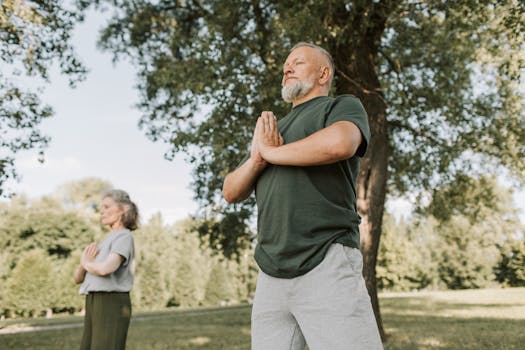
Regular Exercise and Mental Health: The Surprising Benefits of Physical Activity
Regular exercise and mental health are closely linked, and the benefits of physical activity on our mental wellbeing are numerous and well-documented. In this article, we’ll explore the surprising ways in which regular exercise can transform our lives, from reducing stress and anxiety to boosting mood and self-esteem.
What is the Connection Between Exercise and Mental Health?
Research has shown that regular exercise has a profound impact on our mental health, with benefits that include reduced symptoms of anxiety and depression, improved mood, and enhanced cognitive function. But what exactly is the connection between exercise and mental health? The answer lies in the complex interplay between physical activity, brain chemistry, and our emotional state.
How Exercise Affects Brain Chemistry
Exercise has a profound impact on brain chemistry, with the release of endorphins, dopamine, and other neurotransmitters that play a crucial role in regulating our mood and emotional state. Regular physical activity has been shown to increase the production of brain-derived neurotrophic factor (BDNF), a protein that helps to grow and maintain healthy brain cells.
The Benefits of Regular Exercise on Mental Health
The benefits of regular exercise on mental health are numerous and well-documented. Some of the most significant advantages of physical activity include:
- Reduced symptoms of anxiety and depression
- Improved mood and reduced stress levels
- Enhanced cognitive function and improved concentration
- Boosted self-esteem and body confidence
- Improved sleep quality and duration
Types of Exercise that are Beneficial for Mental Health
While all types of exercise are beneficial for mental health, some activities are more effective than others. Some of the most beneficial forms of exercise for mental wellbeing include:
- Aerobic exercise, such as running, cycling, or swimming
- Yoga and Pilates, which combine physical movement with mindfulness and breathwork
- Strength training, which can help to boost self-esteem and confidence
- Group fitness classes, which provide social support and a sense of community
How to Get Started with Exercise for Mental Health
Getting started with exercise for mental health can seem daunting, but it’s easier than you think. Here are some tips to help you get started:
- Find an activity that you enjoy, whether it’s walking, running, or dancing
- Schedule exercise into your daily routine, just as you would any other appointment
- Start small and gradually increase the intensity and duration of your workouts
- Find a workout buddy or join a fitness community for support and motivation
Conclusion
Regular exercise and mental health are closely linked, and the benefits of physical activity on our mental wellbeing are numerous and well-documented. By incorporating exercise into our daily routine, we can experience a range of benefits that extend far beyond the physical realm, from reduced stress and anxiety to improved mood and self-esteem. So why not get started today and discover the transformative power of exercise for yourself?
Regular exercise and mental health: The Bottom Line
Regular exercise is a powerful tool for maintaining good mental health, and the benefits are numerous and well-documented. By finding an activity that you enjoy and making it a regular part of your routine, you can experience the many advantages of physical activity and transform your life in the process.
References
For more information on the benefits of regular exercise on mental health, check out the following resources:
- National Institute of Mental Health: https://www.nimh.nih.gov/
- World Health Organization: https://www.who.int/
- Centers for Disease Control and Prevention: https://www.cdc.gov/
Regular Exercise and Mental Health: Next Steps
Now that you know the benefits of regular exercise on mental health, it’s time to take the next step and make physical activity a regular part of your routine. Remember to start small, find an activity that you enjoy, and schedule exercise into your daily routine. With time and practice, you can experience the many advantages of exercise and transform your life in the process.
Final Thoughts on Regular Exercise and Mental Health
In conclusion, regular exercise and mental health are closely linked, and the benefits of physical activity on our mental wellbeing are numerous and well-documented. By incorporating exercise into our daily routine, we can experience a range of benefits that extend far beyond the physical realm, from reduced stress and anxiety to improved mood and self-esteem. So why not get started today and discover the transformative power of exercise for yourself?



